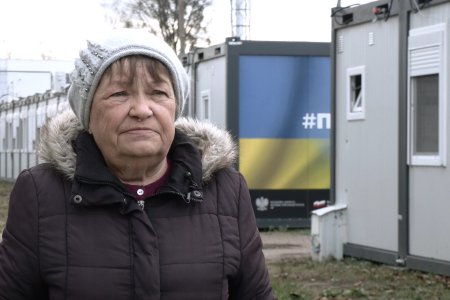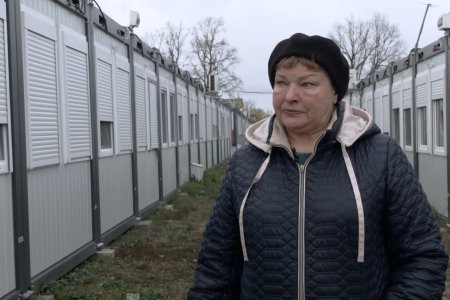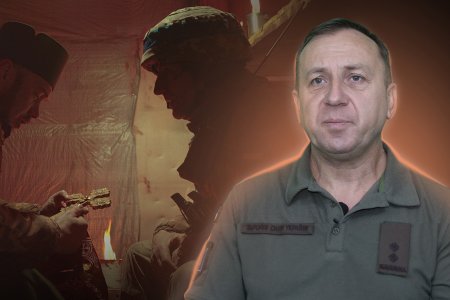Before the full-scale invasion, my family and I lived in a nine-story building. I have a large family: two daughters and four grandchildren. The news of the war reached us at four o’clock in the morning. Of course, we didn’t believe it right away. Nobody believed it. Nobody warned us about this. When we realized everything was serious, we rushed to prepare. We were told that Hostomel was already being bombed and that it would soon reach us. We decided to prepare the necessary things and documents.
We packed until the morning, we were nervous, we didn’t believe that this was happening. We thought about what would happen next, where to go, what to do. Our neighbors and my children went to work. But there, they were told to return home. Then we heard explosions and realized that Russia had attacked [us].
At first, we stayed in Borodianka. Our house was still intact then. Everyone thought about how to do it if they had to leave. People were preparing transport, thinking about what to do. The explosions were getting closer, and we collected the necessary products in addition to documents because we had small children and grandchildren. In the morning, we heard that there was a significant Russian offensive against Borodianka. We decided we needed to go to the village of Druzhnia because we have large houses in Borodianka, and there would be nowhere to hide. My daughter lives in Druzhnia, where she has a basement in a private home.
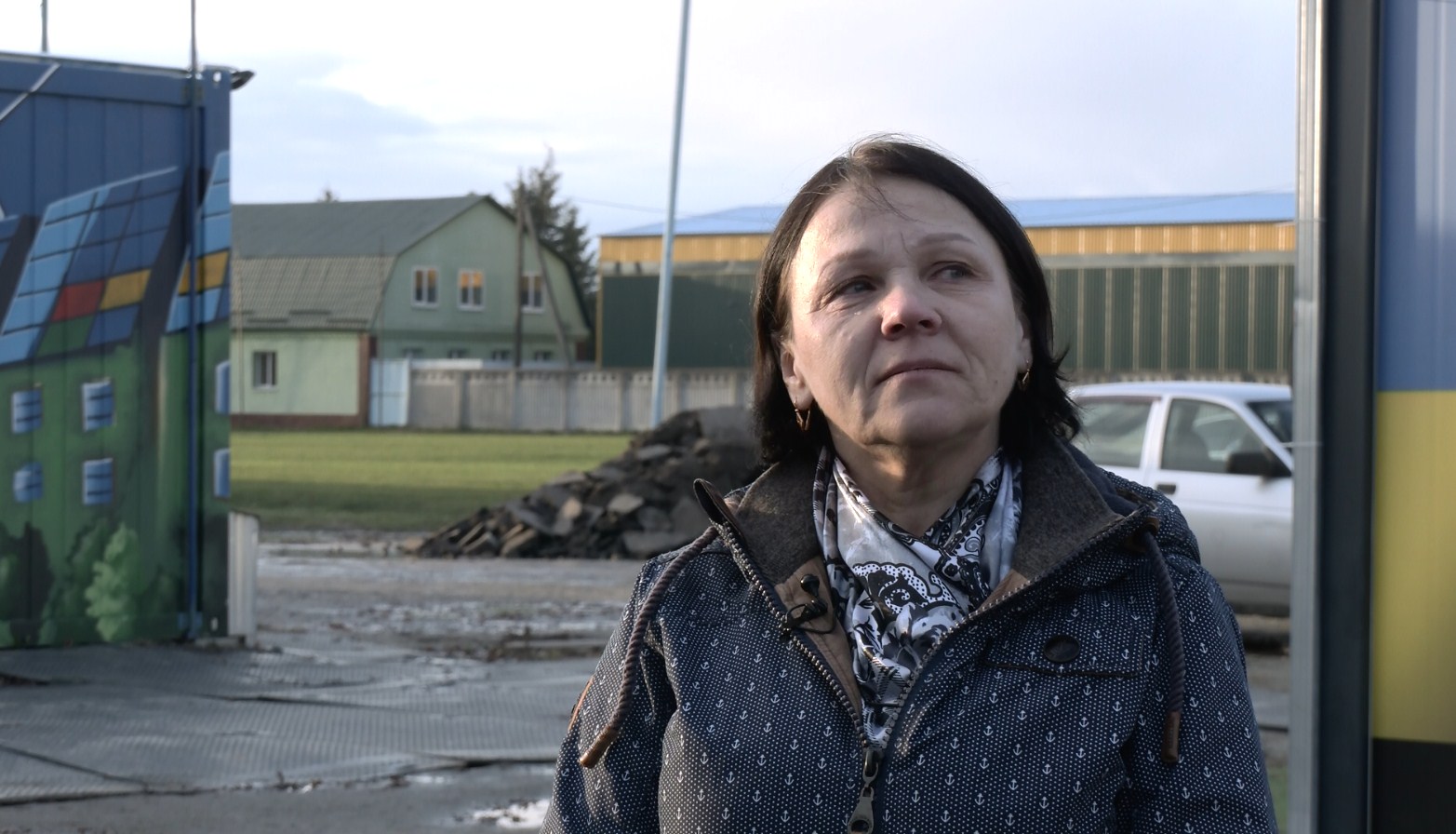
When Russian tanks appeared in Druzhnia, and explosions began, we immediately hid in the basement. That day, they hit the oil depot next to us, a fire broke out, and there was heavy smoke. We decided to run further and hide somewhere else. We found an unfinished house with a large basement, where my neighbors and I stayed until 2 March.
Since we took almost nothing with us, my sons-in-law decided to return to Borodianka for warm clothes. But we didn’t get to Borodianka as there were already battles there. On 2 March, the Russians dropped bombs on Borodianka. First, they dropped a bomb on house No. 359. There were people in the basement. Then we thought: it’s good that we decided not to hide in multi-story buildings. And 20 minutes later they dropped a bomb on our house.
We realized that this was a real war. We started our cars and decided to run further. On the road, we saw shot cars and bleeding people screaming. It was terrible. We didn’t know where to turn or where to go so as not to run into Russians because we were terrified for the children. We drove cars into the forest and hid wherever we could. In the end, we got to the Chernivtsi Region, to Luzhany. Volunteers took us there and put us in a hostel.
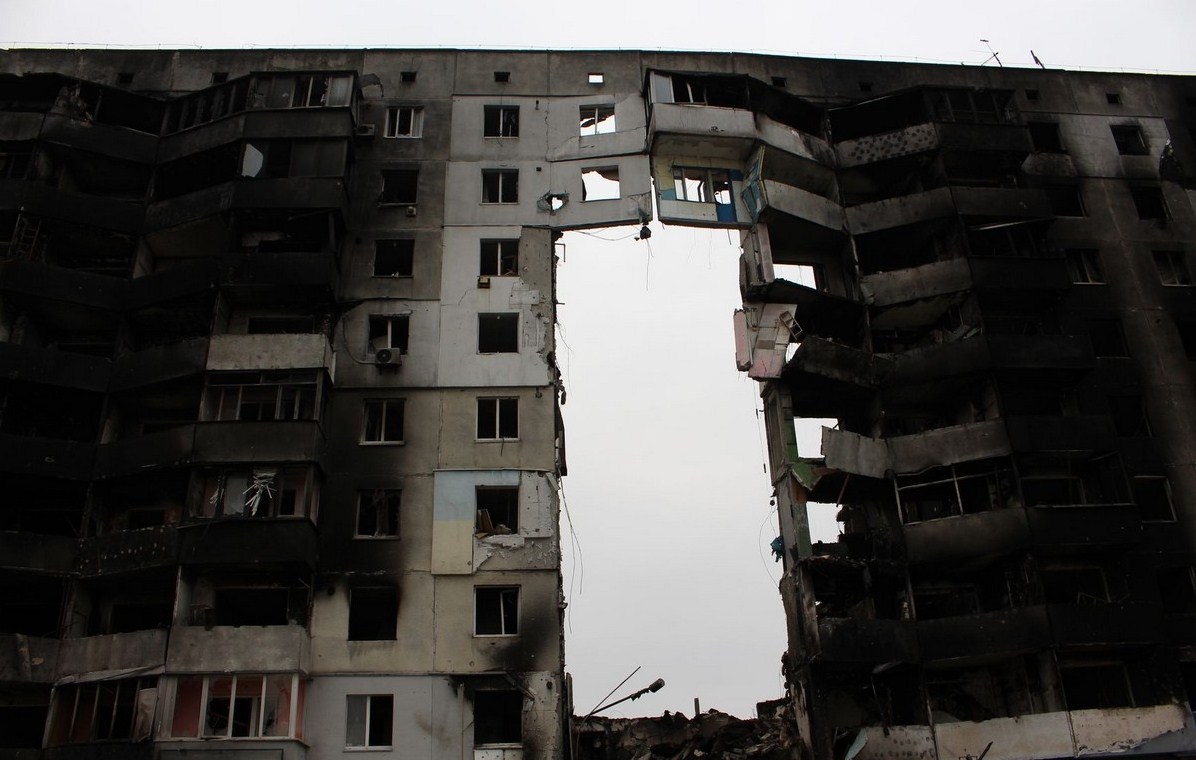
At that time, there was a coronavirus epidemic, and our children began to cough. We were lying mattress to mattress, all on the floor. It became clear that we needed to save the children so they wouldn’t get sick. Suppose we lose children not from war but from illness. Therefore, we decided to look for a place with fewer people.
We were sent to the Chernivtsi Region, to the town of Kelmentsi. We are grateful to the residents of this town! They provided us with a beautiful big house. There were nine of us from Borodianka with small children. And we all settled there. We were there until 1 April. Borodianka had already begun to be liberated. At the end of April, we returned home with the children, with everyone. However, everything here was already destroyed; there were cars and tanks on fire.
Two rockets hit our house. There were many dead. These people did not believe that the war had started and stayed home. Many were not found, even when the rubble was cleared away. People didn’t understand that they couldn’t hide in these basements.
Now, my family and I live in a modular town in Borodianka. Both our volunteers and Europe are helping us. Now they even bring us lunch every day. We are grateful to everyone who participated and did not leave us in trouble.
And we also try to help in any way we can! We weave nets, make candles for the trenches, and try to be useful. And we believe that victory is ours because we are Ukrainians and do not give up. We believe that we will overcome everything. Our Armed Forces are the best in the world!
